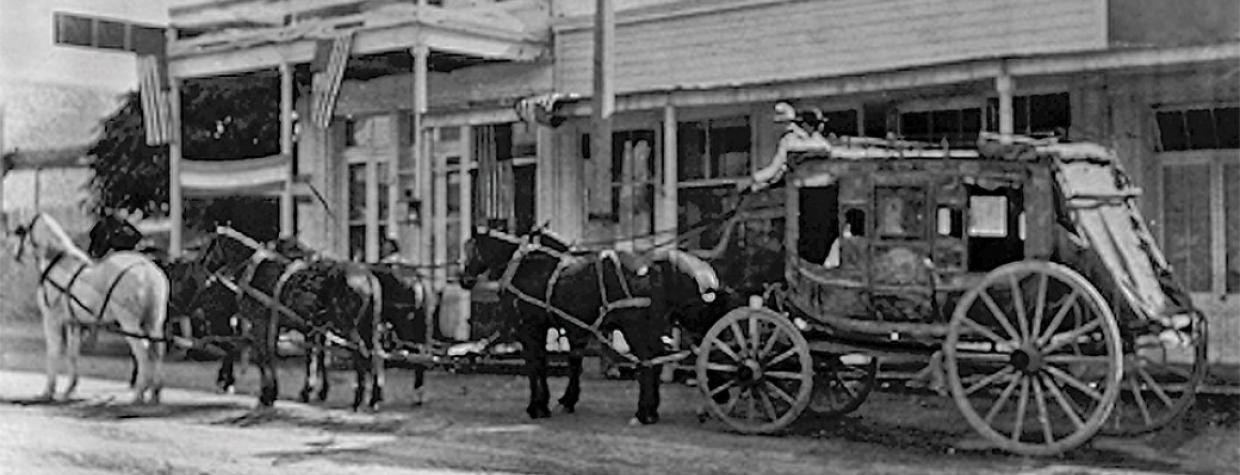A stagecoach rumbles into town, and clouds of dust billow around it. The driver tugs the reins and pulls the horses to a stop — just long enough to drop off and pick up bags of mail, load and unload passengers, eat a meal, replenish water and change horses.
It reads like a scene from a John Wayne Western, but in 1858, the stagecoaches of the Butterfield Overland Mail were real, and they provided the best means to move letters, packages and passengers westward from the Mississippi River.
Several things led to the establishment of the route: The Mexican War and the Gadsden Purchase, Manifest Destiny and the discovery of gold in California. As a result, the United States Congress authorized a contract for overland mail service from Missouri to California via horse-drawn conveyances and awarded it to New York businessman John Butterfield. That was 1857.
It took a year to work out the details, and when the Butterfield Overland Mail was finally ready to roll, it used a southern route to avoid bad weather. In addition, Butterfield refused to carry gold or silver in an effort to cut down on attacks by highwaymen, but that didn't mean the trail was trouble-free — especially in Arizona.
The 139 relay stations along the 2,795-mile route stood about 20 miles apart, and in Arizona, the most infamous stop was at Apache Pass. It was built there because of access to fresh water at Apache Spring. Later, the station was the site of the 1861 Bascom Affair, during which Lieutenant George Bascom had words with Cochise, the Apache chief. The event set off a chain reaction (including the only attack on a Butterfield stage) that pitted Apache Indians against Arizona settlers for the next 25 years.
In 1860, with the Civil War looming, the Pony Express began carrying the mail over a central route to avoid the violence in the South. The next year, the Butterfield Overland Mail route was discontinued and the Pony Express joined forces with Wells Fargo to deliver the mail.
Though the Butterfield operation lasted only two-and-a-half years, its existence helped stitch together a growing country and open the West to settlement.

